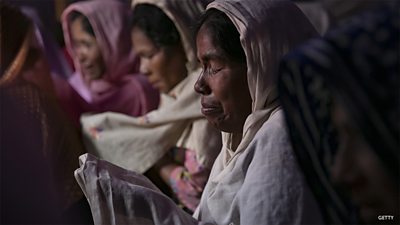Downloads
Publication date: November 2018
Authors: Md. Arif Al Mamun, Nicola Bailey, Moiyedul Azam Koreshi and Fariha Rahman
Overview:
To inform the development of a new radio drama for Rohingya refugees in Cox’s Bazar, Βι¶ΉΤΌΕΔ Media Action carried out a small scale qualitative research study that sought to understand more about Rohingya men and womens’ understanding and attitudes towards child marriage, intimate partner violence and sexual exploitation and abuse.
This report shares findings from this study, which was carried out in partnership with Norwegian Church Aid, with funds from the Norwegian Ministry of Foreign Affairs.
Eight in-depth interviews and four mini focus group discussions were held with Rohingya men and women living in two camps in Cox’s Bazar, as well as key informant interviews with humanitarian practitioners working on issues related to gender-based violence (GBV).
The study found that intimate partner violence and child marriage are deeply rooted and normalised within the Rohingya community in Cox’s Bazar.
The perceived economic and social benefits of marrying their daughters off early greatly outweigh the risks of child marriage for parents, who have little knowledge of the health risks of early childbirth, and fear social criticism if their daughters are not married within two to three years of going through puberty.
Both Rohingya men and women accept intimate partner violence as a normal part of life, and believe it is the husband’s right to abuse his wife if she does not fulfil her duties. Women rarely speak out about violence against them, for fear they will be socially ostracised and their husbands will remarry, leaving them with no financial stability and no opportunity to remarry.
These findings have clear implications for communications initiatives, including the need to work towards de-normalising gender-based violence, by engaging both male and female audiences in storylines which encourage them to question existing practices and norms.
This report contains testimonies which may be distressing to read.
